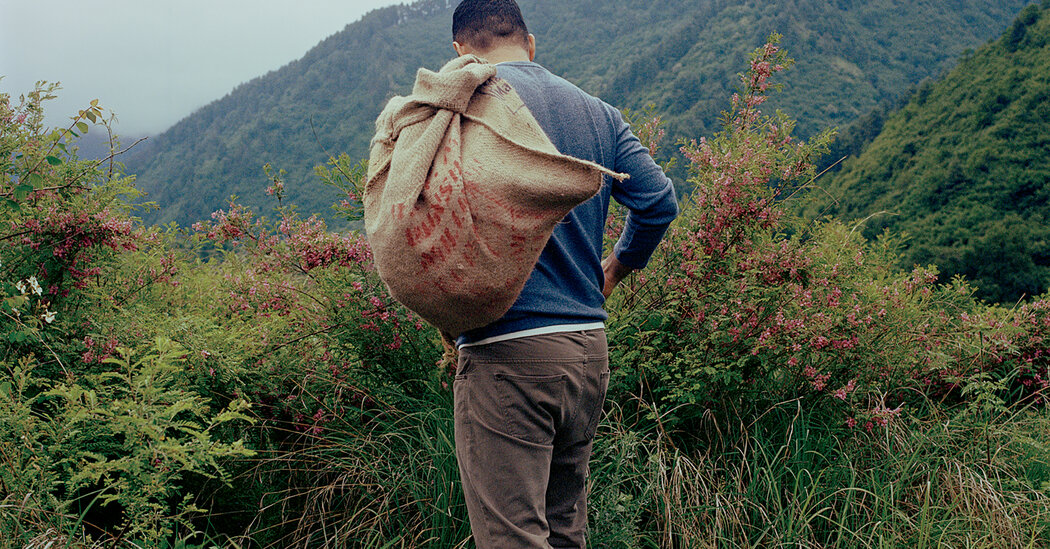
THE BEARS WERE dark shapes among the furrowed oaks in Dachigam National Park, a maharajah’s private hunting preserve turned wilderness sanctuary more than 5,000 feet above sea level outside of Srinagar, Kashmir. It was the fall of 2018. I had landed in Srinagar that afternoon and now stood in deep woods alongside the Kashmiri chef Prateek Sadhu, who had come to forage sorrel, collards and dandelion greens for his Mumbai restaurant, Masque. Officially, the sanctuary — home to snow leopards and what may be the last couple of hundred hanguls (Kashmir stags) in the world — is closed when night falls. But over two years of foraging, Sadhu had earned the respect of the rangers, and one of them had spotted the bears and led us toward them for a closer look, warning us to stay together. When a twig cracked underfoot, he put a finger to his lips. Later, I would learn that the Himalayan black bear is among the most savage of its genus, prone to unprovoked attacks and fond of grasping humans by the head. But for now, we watched them silently in the weak rain, more curious than afraid, believing ourselves hidden and safe.
And we were. The bears, a mother and two cubs, slunk off, and we headed back to the dirt road and the open jeep, rocking and rattling until we reached higher ground. Now the valley was spread before us, green on green without any marks of habitation, mountains like bare knuckles lining up behind and long wet grasses arcing in waves at our feet. Kneeling among them, Sadhu gently uprooted dandelion stalks with spiky-edged leaves. Known locally as haandh, they were young and tender and, when raw, tasted like spring water tipped from a wooden ladle, with a faintly bitter aftereffect. At Masque, they would be anointed with mustard oil and veri masala, a blend of fervent Kashmiri chiles and spices bought in hard red cakes from a shop in Shehr-e-Khaas, Srinagar’s old city, then pulverized, lanced with lime and finally brushed over fish or lamb, less sauce than veil. Before all this, the greens would have to be blanched — four times — so that they bore no memory of bitterness.
The chef as forager has been a romantic, even heroic, figure for nearly two decades, since the ascendance of its modern archetype, René Redzepi of Noma in Copenhagen. Sadhu interned at Noma for a month when he was 24, in the fall of 2010, the year the restaurant topped the World’s 50 Best Restaurants list. He saw how Redzepi had put Nordic ingredients and cuisine on the map — and resolved to do the same for his native Kashmir. But Sadhu has a greater burden: His territory is uncertain. Where Redzepi’s Denmark is consistently ranked as one of the most harmonious and contented countries on earth, Kashmir is a conflict zone, a flash point between two nuclear powers, India and Pakistan. Hundreds of thousands of troops are massed on either side of the Line of Control, a de facto border that isn’t legally recognized, and regularly trade fire. The countries have fought three outright wars over the region; tens of thousands of lives have been lost.



